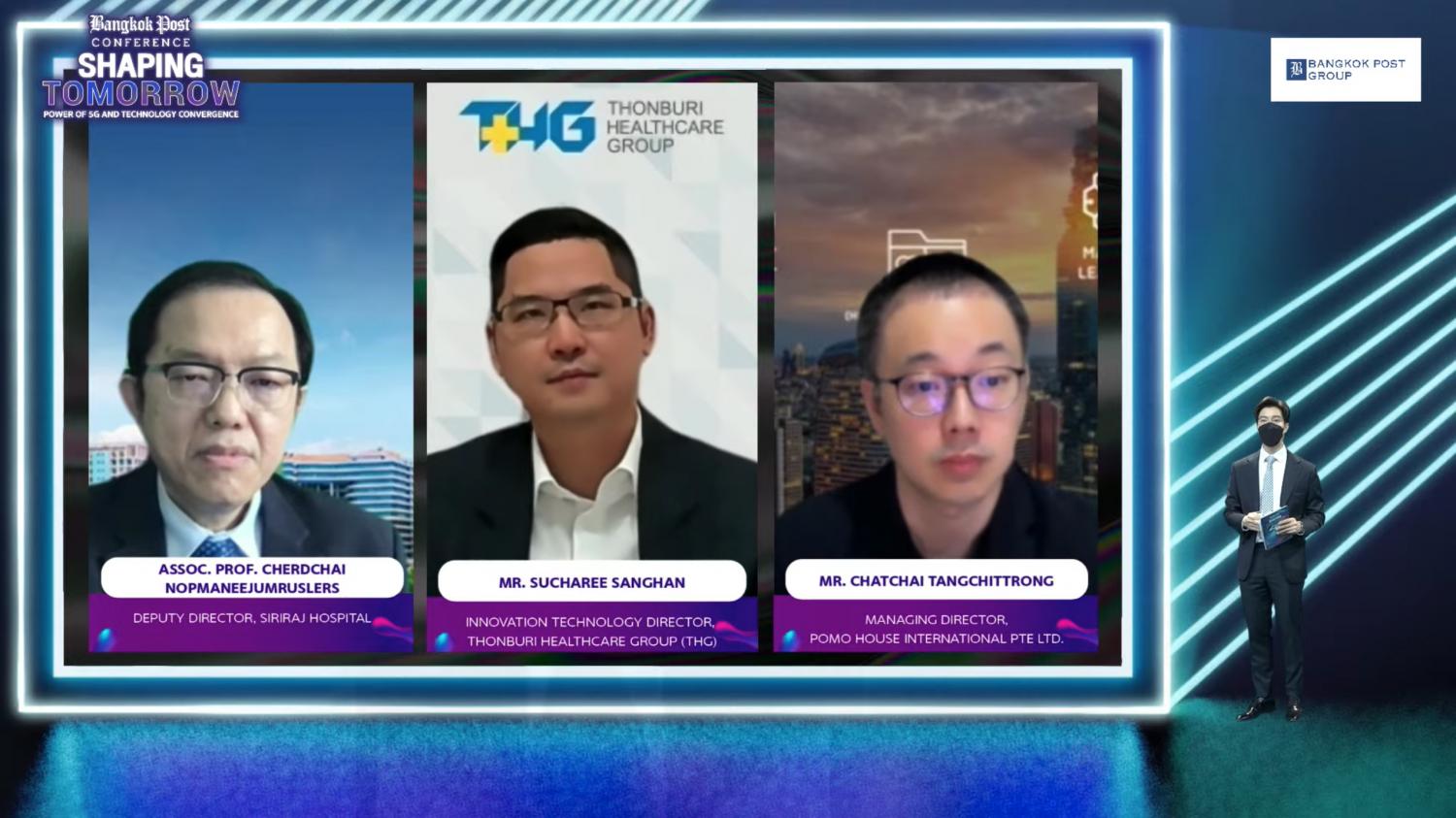
5G, artificial intelligence (AI), the Internet of Things (IoT) and other emerging technologies are expected to reshape healthcare service in the years to come as access to better medical service becomes available, say industry players.
These new technologies could help save lives, reduce medical personnel workloads and support precision medicine.
These opinions were shared at Bangkok Post's virtual conference entitled: "Shaping Tomorrow: Power of 5G and Technology Convergence".
SMART HOSPITAL
Cherdchai Nopmaneejumruslers, deputy director of Siriraj Hospital, said new technologies will support telemedicine, allowing patients to receive remote medical advice.
"Within the next few years, patients suffering from diabetes and blood pressure may forget their last visit to the hospital," he said.
"Many people now forget the last time we went to a bank counter."
In the next decade, Thailand still faces challenges in healthcare access because of the shortage of physicians.
Siriraj Hospital has around 80,000 inpatients per year and 3.8 million outpatients, creating overcrowding, said Mr Cherdchai.
This creates concern about a health service gap in the future, particularly for complex diseases, he said.
Technologies such as 5G, IoT, edge computing, cloud, big data and AI should allow faster processing, reduction of unnecessary hospital visits, lower costs and increased productivity, said Mr Cherdchai.
"Disruptive technologies can be used to observe people's habits, such as diet, and monitor vital signs. AI can be used to analyse patients' data to support precision medical treatment," he said.
He also highlighted "healthcare everywhere" as a future concept.
Siriraj's smart hospital project was selected by the National 5G Committee as the role model to apply 5G technology to enhance healthcare services. The hospital also adopted blockchain technology to support decentralised personal health records, allowing quick, secure access to information.
Siriraj Hospital deploys an emergency medical system using 5G and AI to support smart ambulance solutions. In emergency rooms, personnel can use 5G-powered medical equipment to monitor patients' conditions and AI to help assess and send alerts.
Mr Cherdchai said AI can also be used to diagnose non-communicable diseases and support medical study.
If the tech adoption at Siriraj Hospital continues to work well, the model will expand to other pubic hospitals, he said.
DATA-DRIVEN MEDICINE
5G wireless technology not only facilitates communication between doctors and patients, but also helps analyse illness data for more precise treatments that are projected to make up the core of modern medicine, said Sucharee Sanghan, director of innovation technology for Thonburi Healthcare Group (THG).
A wide range of technological applications should help Thailand survive the pandemic and become a regional medical hub, he said.
"Thai doctors are known for their talent and treatment costs here are reasonable," said Mr Sucharee.
"5G technology added to these strengths should secure our position as a medical hub."
5G can help doctors examine symptoms and make follow-up treatments for foreign patients when they return to their countries, he said.
"Sensors can be embedded in patients that send their physical conditions via 5G to doctors for analysis," said Mr Sucharee.
Telemedicine, which allows doctors and patients to communicate with each other, is also used in ambulances to allow doctors to give advice and plan treatments in advance.
THG plans to use the Internet of Medical Things to improve the quality of its medical services and better match the needs of patients, he said.
SAFE AND SECURE
Chatchai Tangchittrong, founder of Pomo House International, a health and travel tech startup, said the company uses wristbands for tourists on its Digital Yacht Quarantine programme, a collaboration between the Digital Economy Promotion Agency, Advanced Info Service and the Phuket government.
"We track data such as vital signs and temperature of tourists on the yachts and send the data to physicians and officials on shore," he said.
"This allows tourism to continue and makes travelers happy."
Yachts remain in restricted areas to reduce risk of infection.
"This is an ongoing project with hundreds of premium tourists that spend a lot," said Mr Chatchai.